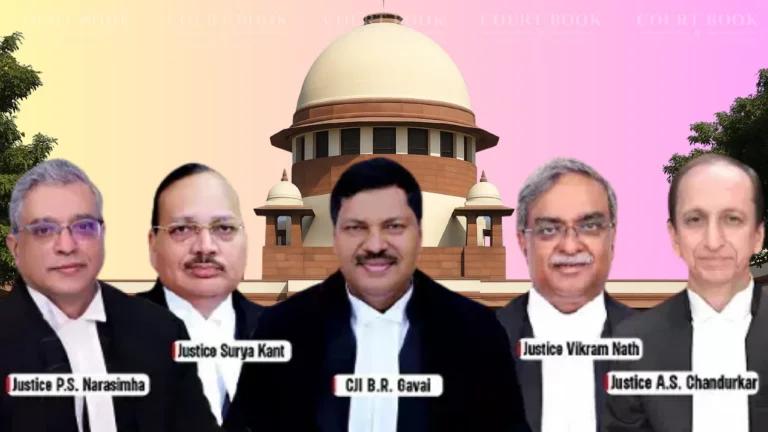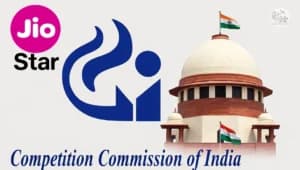On July 22, the Supreme Court issued notices to the Union Government and all State Governments regarding the Presidential Reference made by President Droupadi Murmu on the powers of the Governor and President under Articles 200 and 201 of the Constitution. The reference aims to clarify constitutional powers related to giving assent to Bills passed by State Legislatures.
A Constitution Bench led by Chief Justice of India DY Chandrachud, along with Justices Surya Kant, Vikram Nath, PS Narasimha, and AS Chandurkar, took up the matter. The case is titled IN RE : Assent, Withholding or Reservation of Bills by the Governor and the President of India | SPL. REF. No. 1/2025. The hearing is scheduled for next Tuesday, with the Court proposing full arguments in August.
Read also: “A Cow is a Cow” – Supreme Court Rejects Plea for Use of Only Indigenous Cow Milk at Tirumala Temple
“We propose to hear this matter in August,” said Chief Justice BR Gavai.
The Supreme Court has requested the Attorney General of India, R. Venkataramani, to assist in the matter. Solicitor General Tushar Mehta waived notice on behalf of the Union of India.
Senior Advocate KK Venugopal, representing Kerala, indicated that Kerala will challenge the maintainability of the Reference. P. Wilson, representing Tamil Nadu, argued that the Tamil Nadu Governor case already addresses these issues and said Tamil Nadu will also question the Reference's maintainability.
Read also: Supreme Court Directs Isha Foundation and Nakkheeran to Approach Delhi High Court
Background
The Reference comes after a significant Supreme Court judgment in the Tamil Nadu Governor case, where the Court stated:
“The Governor cannot sit indefinitely on Bills. A decision must be taken within three months.”
In that ruling, the Court held that the President, too, must decide within three months if a Bill is reserved under Article 201. It also said that in case of delay, the State can seek a writ of mandamus. The Court deemed 10 bills in Tamil Nadu to have received assent after being pending with the Governor for over a year.
This judgment sparked criticism from Vice President Jagdeep Dhankhar, who questioned whether the judiciary can direct the President and described Article 142 as a “nuclear missile.”
The President’s Reference under Article 143 poses 14 important constitutional questions, including:
- What actions are open to the Governor under Article 200 when a Bill is presented?
- Whether the Governor is bound by the advice of the Council of Ministers?
- Whether the Governor’s and President’s constitutional discretion under Articles 200 and 201 is justiciable?
- Can courts impose timelines on Governors or Presidents when none are prescribed in the Constitution?
- Whether Article 142 allows the Court to substitute or override constitutional processes?
- Whether courts can interfere before a Bill becomes law?
- Can a law passed by a State Legislature be valid without the Governor’s assent?
- Whether Article 145(3) requires a 5-judge bench when substantial constitutional questions are involved?
- Is Article 131 the only route for resolving Union-State disputes in such cases?
Interestingly, Justices Narasimha and Chandurkar are also hearing the Kerala Government’s plea related to its Governor withholding Bills, which the State says is governed by the Tamil Nadu judgment. The Union, however, opposes this view and insists that the Reference should be decided first.
Case Details: IN RE : ASSENT, WITHHOLDING OR RESERVATION OF BILLS BY THE GOVERNOR AND THE PRESIDENT OF INDIA|SPL.REF. No. 1/2025















